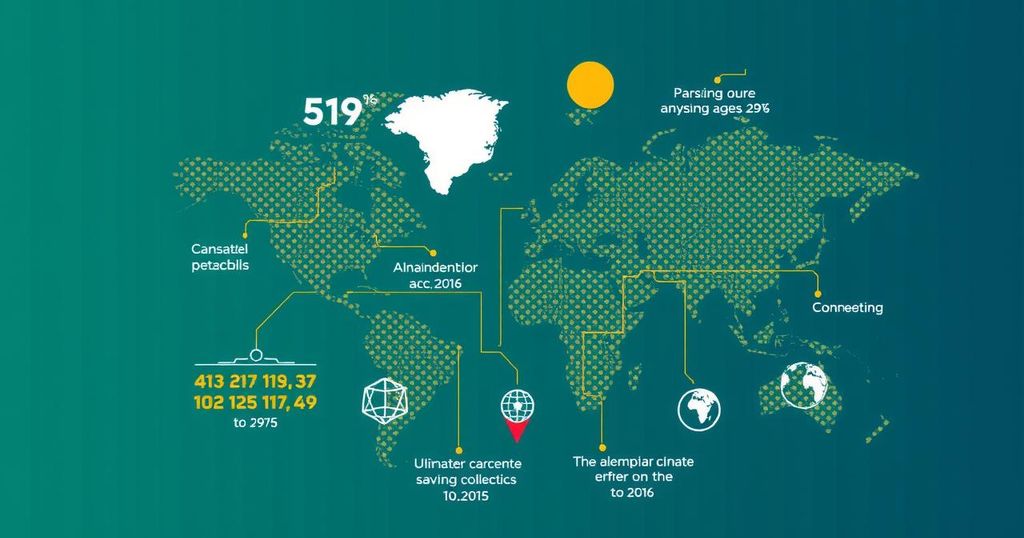Mixed Reactions to COP29 Agreement on Climate Finance

The COP29 summit in Azerbaijan ended with a contentious agreement on a $300 billion annual climate finance target for developing countries. Reactions were mixed, with criticism focusing on the inadequacy of the deal in light of increasing global emissions. Developing nations expressed deep disappointment, particularly concerning insufficient funding commitments. The anticipated return of climate skeptic Donald Trump adds uncertainty to US participation in future climate cooperation, complicating efforts toward collective climate mitigation.
The recent COP29 summit in Azerbaijan concluded with a contentious deal to establish a global financial target of $300 billion annually to support developing nations facing climate change challenges. The reception of this agreement was notably mixed, with some delegates celebrating the breakthrough while others expressed outrage over its perceived inadequacies. COP29 President Mukhtar Babayev reportedly prepared alternative speeches reflecting the summit’s unpredictable outcome and ultimately delivered the more optimistic message amidst widespread dissatisfaction from many attendees.
The negotiations leading to the deal highlighted increased tensions, particularly with 23 nations, including the US and UK, expected to contribute funds to developing countries. However, uncertainty loomed over the US commitment amid the anticipated return of former president Donald Trump, known for his climate skepticism. A significant portion of developing nations expressed disappointment over the outcomes, feeling sidelined in crucial negotiations, especially regarding the more substantial climate finance they had sought.
Developing nations overwhelmingly criticized the deal, with particular emphasis on India’s envoy labeling the agreement an “optical illusion,” reflective of the developed countries’ reluctance to fulfill their climate responsibilities. As a result, many participants voiced that the agreement did not adequately address the climate crisis, especially given the projection of record global temperatures in the upcoming year. These frustrations signal a broader issue of trust and commitment within the climate cooperation framework, complicating future negotiations, such as those anticipated at COP30 in Brazil.
This year’s COP29 summit was particularly significant as global climate discussions become increasingly urgent amidst rising emissions and insufficient commitments from developed nations. The need for enhanced climate finance is critical for developing countries, who are most affected by the adverse effects of climate change. The agreement reached at COP29, while a step forward, raised concerns about the willingness of wealthy nations to meet financial obligations and address calls for more substantial climate action as the world faces an impending crisis with potentially catastrophic temperature increases.
In conclusion, the COP29 summit demonstrated both the challenges and the complexities surrounding global climate cooperation. While a financial agreement was achieved, the ongoing divisions among nations highlight a significant trust deficit. As the world anticipates COP30 in Brazil, it will be crucial for nations to reconcile their differences and recommit to urgent and effective climate action to prevent further deterioration of the climate crisis and support vulnerable communities worldwide.
Original Source: www.asiafinancial.com








